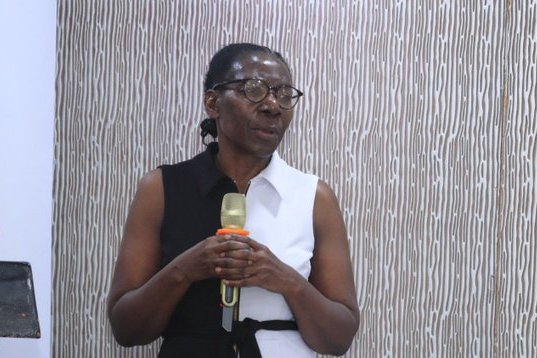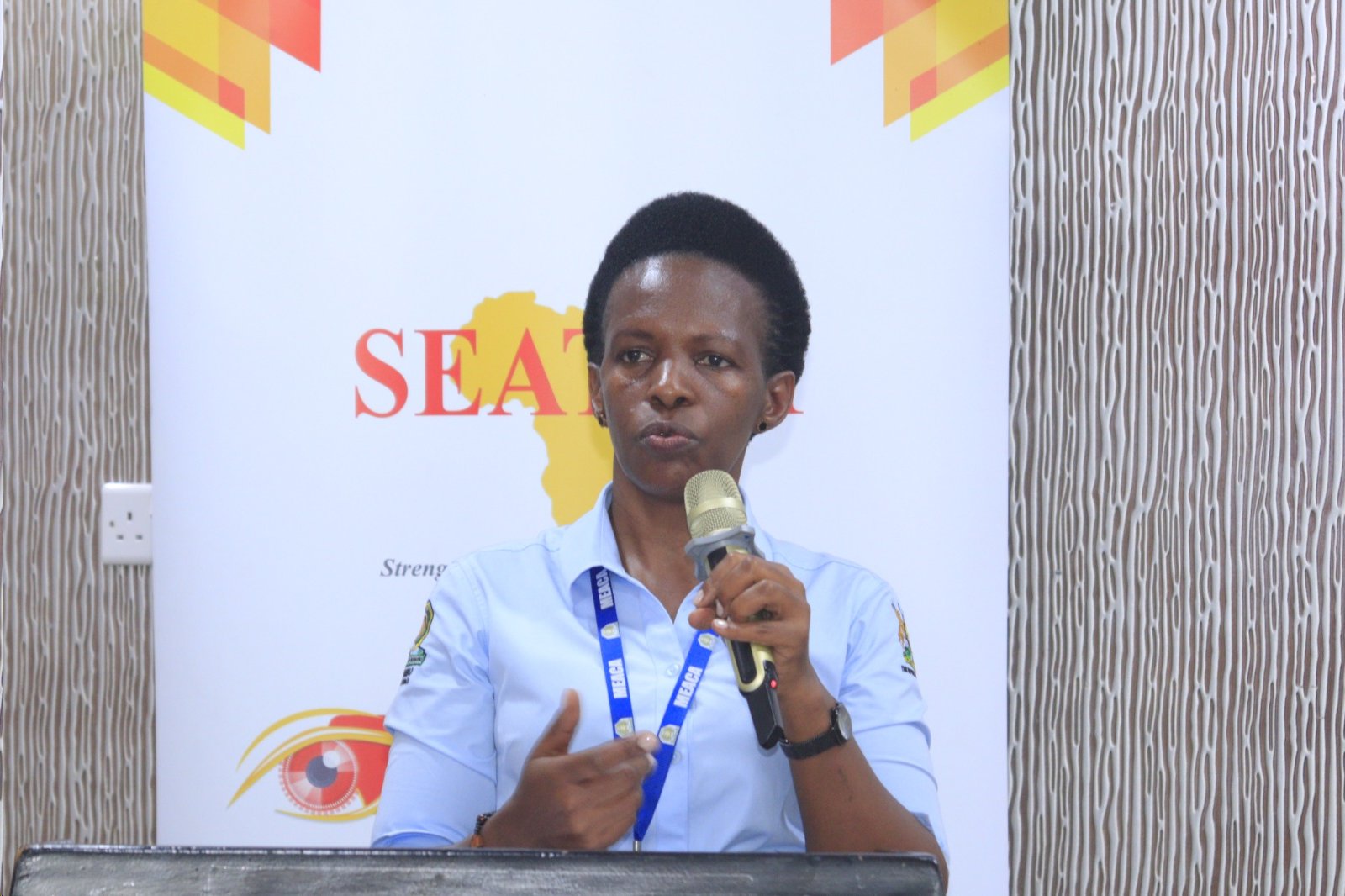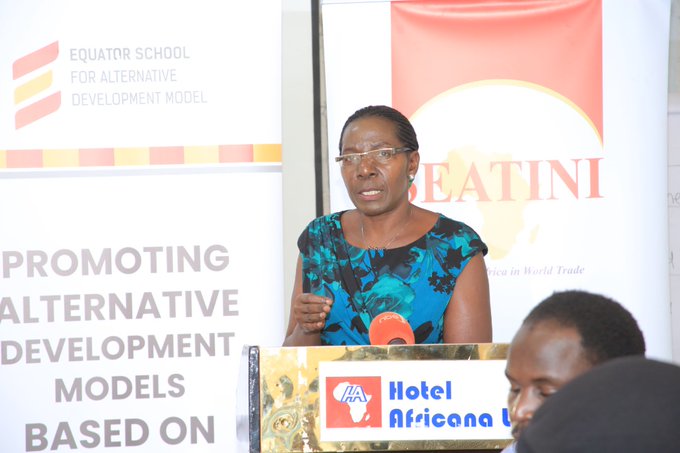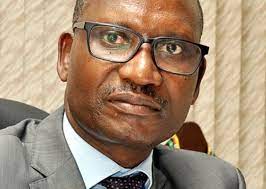TRANSPARENCY: CoST Uganda Commissions 2nd Infrastructure Transparency Index
By PATRICK JARAMOGI
KAMPALA, Uganda =SHIFTMEDIA- The Government ban on foreign travels for civil servants is beginning to take a long toll on trade negotiations, experts have revealed.
At the beginning of last year, 2023, government restricted traveling abroad to only the President, Vice President, the Speaker of Parliament, and her deputy, the Chief Justice, deputy chief Justice, the Prime Minister, the principle judge, and critical travel to security, arbitration of government cases, and resource mobilization.
The measure that was announced by Secretary to Treasury Ramathan Ngobi, as a means to address financial constraints, also affected Ministers, Members of Parliament and other public officers.
The cries about the budget cuts on foreign trips hurting trade negotiations came to light on Wednesday March 27 as scores of government officials called for lifting of the ban.
The officials, mainly from the Ministry of Trade, Industry, and Cooperatives said with lack of funding to the specific committees, tasked with negotiating trade deals for the nation at the World Trade Organisation, the continent, and at the region, Uganda was set to lose out.
Christopher Matsiko the Senior Commercial Officer from the Ministry of Trade Industry and Cooperatives told the stakeholders drawn from government MDAs. Civil society, academia, policy makers, and the media that the ban of foreign travels was hurting trade negotiations.
“We can’t do much without funding. We are constantly begging donors to fund our foreign travels, but these funding often comes with strings attached,” he said. He said when donors fund committees going for trade negotiations, they want to be supported along their ways. “We were in Abu Dhabi for the 13 Ministerial Conference, but we didn’t achieve much as a nation. Unless this begging of air tickets from donors stops, we shall pay the price,” he said.
George Opio from the Uganda National Bureau of Standards, (UNBS) said; “You can’t get funding for a travel from someone and go against their proposal. Government needs to facilitate the various committees put in place to advance Uganda’s agenda in trade negotiations,” he said.
He said most developed nations have their own agenda to push at the WTO trade negotiations meetings. “These funds come with conditions, so let’ avoid them,” he said.
Jane Nalunga, the Executive Director SEATINI told the participants to learn lessons regarding the dispute mechanisms. “We need to learn what transpires at the WTO, but before we look further, let’s start with our own EAC, COMESA, and the Africa Confederation of Free Trade Area (AFCFTA),” she advised.

“We at SEATINI, we believe as Uganda, we can trade our way out of poverty. We can produce, create jobs, add value, and trade,” said Nalunga.
“The Geo- political tensions, coupled with the COVID-19 pandemic shocks are hurting global trade. We need to look at the economy beyond GDP. Trade policies are negotiated, not deserved,” she told the stakeholders drawn from various government agencies at Hotel Africana in Kampala.
The stakeholder engagement organized in partnership with the Ministry of Trade, Industry and Cooperatives under the theme: “Evolving trade policy landscape at National, Regional and Global levels and its implications on Uganda’s quest for Structural Transformation.” Was focusing on enhancing stakeholder’s capacity on the role of trade and trade related policies in achieving Uganda’s quest for structural transformation and development.
“Now that we have eight nations under the East African Community, the market has grown to benefit us all. We, need as Ugandans to tap into this huge market,” said Sarah Nakate, the Principal Regional Integration Officer at the Ministry of East African Community Affairs (MEACA).
Nakate said that as MEACA, they don’t implement what has been negotiated, the implementation lies with the various MDAs.

“A lot of trade deals have been negotiated and agreed among the EAC members states- Burundi, DRC, Kenya, Rwanda, Tanzania, Uganda, South Sudan, and Somalia- and more negotiations are underway regarding visa waivers and use of national identity card for member citizens to cross borders,” said Nakate.
Okot Richard Okello, the Assistant Commissioner Division of Trade in the Ministry of Trade Industry and Cooperatives said: “At the continental level, there are no further negotiations, this was done. What is left now if implementation. So far five (5) protocols are being implemented,” he said. He noted that as Uganda, it should focus its energies on producing animal feeds, something he said is a scarcity in East Africa, West, Central and South Africa.

“Uganda can still do well by just trading in the EAC, COMESA, Tripartite, and ACFTA,” he said. “All we need is to be focused, let’s focus on how to do business, but not in the traditional way, let’s put the nuts and bolts together,” said Okello.
He advised Ugandan business interested in exporting to make use of the Uganda Trade Portal, where all guidelines regarding exports are way laid out.








